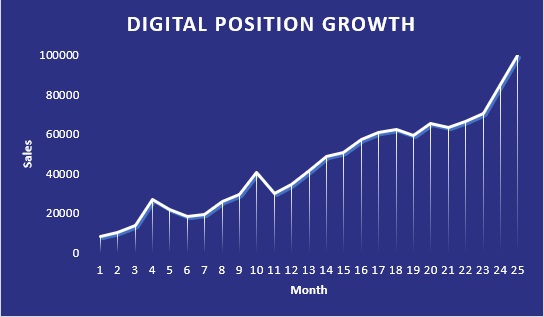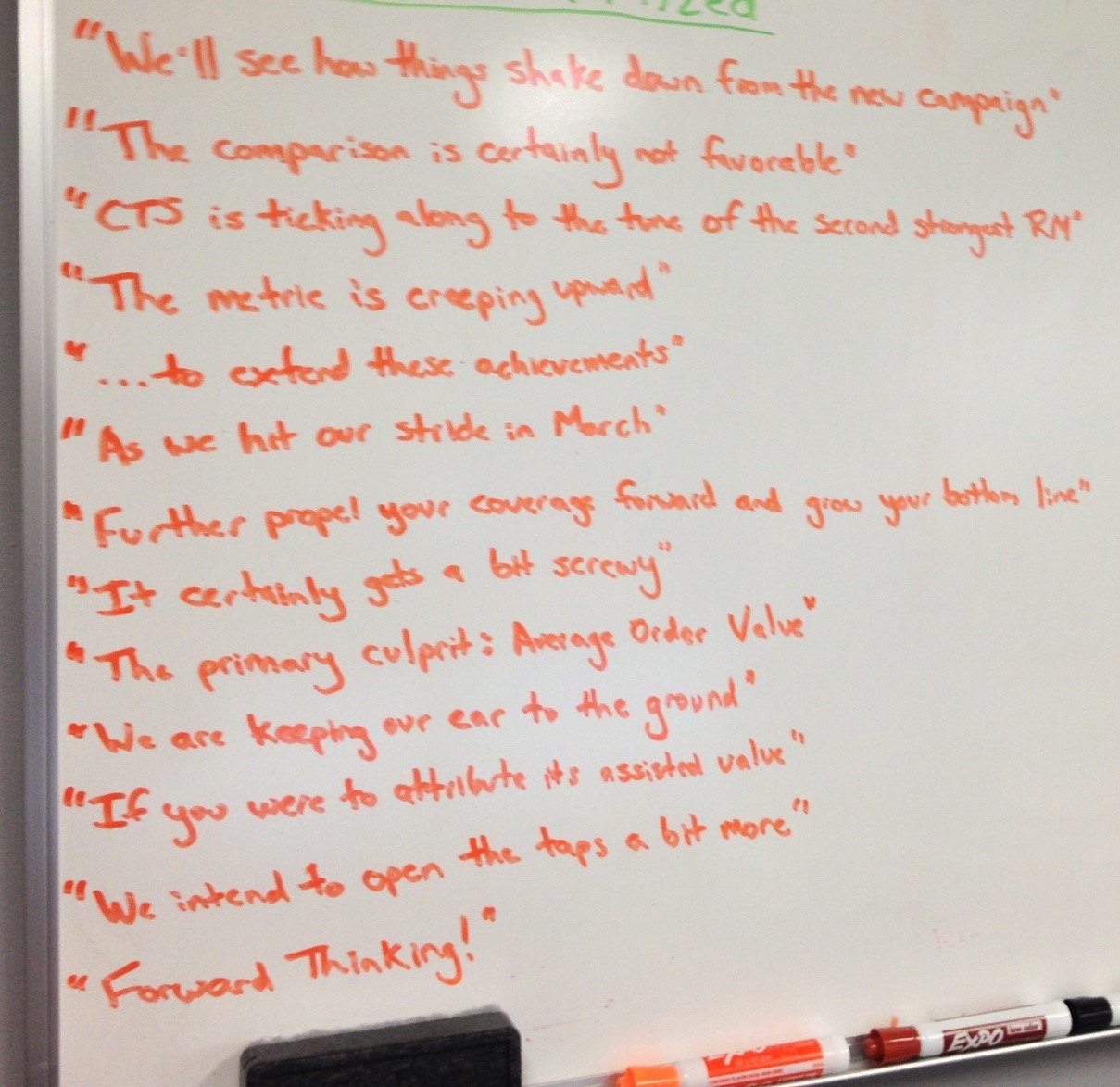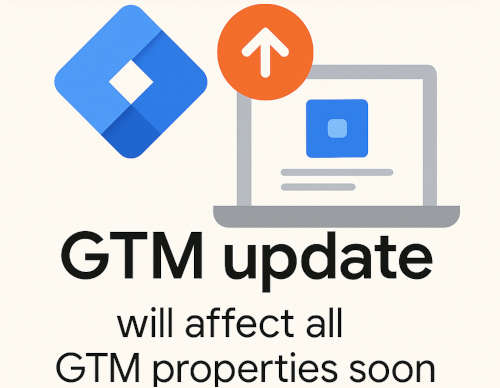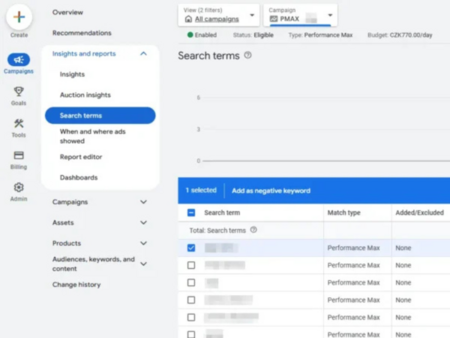What. A. Mess.
I’ve read many posts like this, where successful agency owners talk about their milestones and the steps they took to get there. Meanwhile, my agency has been booming and I spent many (most) months in the last couple years just trying to find some time to take a nap. Where do these other guys find the time to pop the champagne?!
Don’t get me wrong, the beginning of this journey has already been nothing short of amazing and our small team is second to none – they’re like my second family. After all, this type of growth simply does not happen without an unbelievable team coming together and doing whatever it takes to drive results for every client:

Damn.
But let’s mix it up a bit. These are some of the hard lessons I’ve learned from scaling a digital marketing agency from $8k/mo to $100k/mo in 2 years.
1.) Relationships > Results
Hear me out, this does not mean we’re not focused on results. During this amazing stretch we’ve had many clients of all sizes where we’ve aggressively scaled and completely transformed their businesses (we drove 54% revenue growth in our portfolio in 2018 while maintaining the same ROI!). But for this first point I want to focus on 2 specific clients:
- Client #1: We grew PPC revenue from $10k/mo to $300k/mo in 14 months while maintaining the same ROI.
- Client #2: We grew organic traffic 400% while also growing PPC 250% and doubling their ROI in 1 year.
I mean, these clients must absolutely LOVE us right?!
They both fired us.
Why? They wanted more personal human interaction. In a world of stock marketing agency speak, they wanted more of a relationship with us as people. The most frustrating part of this personally was that our team will stop at nothing to get results for our clients. Our team works their tails off and from experience our results blow most other agencies out of the water. We care, a lot.
In fact, the very reason why I started Digital Position in the first place was because I simply could not stand working with other agencies and their corporate buzzwords. I hate that type of speak so much that I once kept track of the ridiculous sayings I heard from another agency I was managing many years ago. Here’s a screenshot of the whiteboard I had behind my desk in 2012:
 My personal favorite is “it certainly gets a bit screwy”. Come on man!
My personal favorite is “it certainly gets a bit screwy”. Come on man!
Clients care about relationships. They want to feel like they’re the only client in your portfolio and that you truly care about their wants and needs. It’s one thing to make someone money, it’s another to spend some time with them and connect as people. If you don’t show your clients the human side of your business, you’re leaving them to assume the worst.
At the end of the day, nobody wants to fire a friend. If you do everything you can to drive results and you let the client in on that ongoing conversation & seek feedback, they’ll be with you through the good and bad times.
The Solution / Results: We rolled out a new communication cadence including a monthly research document to report on specific metrics for the client that can help them in their other marketing efforts. Every client now hears from us at least one time every week. Our retention rate was already high (93%), but now it’s 97%.
2.) Process, Process, Process
If I were to start an agency over again (and had money and time to do so), I’d spend 3 months forming every single process before acquiring any clients. The worst, and I mean by FAR the worst part is having this ultimate catch-22. You’re drowning in work that you’re struggling to complete, and every task takes twice as long as it should. Because you’re inefficient, your labor costs are already too high so you can’t just throw more labor at it to solve the problem. As a result, you’re forced to choose between:
- Continuing to just do the work to keep clients happy right NOW and dig the hole deeper and deeper
- Sacrifice quality of service to spend time fixing processes and make clients happier long-term as your ability to execute work improves.
- Sacrifice your entire personal life, health, and sleep to fix your processes while still executing the work.
I chose option 3. 70 hour work weeks, sacrificing time with my wife and kids, I lost weight, I wasn’t sleeping well, it was a train wreck. Similar to having kids, it’s one of those things that’s hard to understand unless you’ve gone through it. When I see another parent with a fussy baby, I always say to them “I get it, hang in there”. It’s like that.
But to be clear, while others must go through this largely alone as the only owners in their companies (incredible), it wasn’t only me. 2 years ago, I brought on Steve Cozzolongo as my business partner. He went through all this right alongside me, and I still can’t believe how we got through it and came out vastly stronger as partners. I don’t know if I could have done this without Steve, period.
 This is Steve lifting heavy weights. Steve is a lot stronger than me.
This is Steve lifting heavy weights. Steve is a lot stronger than me.
Fix your processes now. Use the “progress over perfection” rule. Just get the processes in place because you’ll be iterating on them anyway in the future. Iterating on something is far easier than building it from the ground up.
The Solution / Results: We overhauled everything. We began using Monday.com as a new task management software. We fixed our IT issues with a remote workforce. We scoped out every step of our process top to bottom and recorded over 100 videos documenting every step for each service for training purposes. We better defined our pricing. We bought HRCloud to handle anything HR related. We improved our business management and hired a tax accountant. We hired lawyers to improve our contracts. You name it, we did it. We transformed the business in Q1 2019 and have recently come out the other side with an unbelievably different business than we had in 2018.
3.) Waiting to Hire
One of the biggest mistakes I’ve made in the past 2 years is that I waited to hire until I had a dire need AND when I was financially “perfectly comfortable” with it. Don’t do this. I repeat, DO NOT DO THIS.
Hire before you need it. Provided your business isn’t broke (that’s a whole separate discussion if it is), who cares if your labor cost is higher than you’d like for a couple months? You can’t run a business in a state of fear by thinking “well what if I lose X client”? If you provide a good service, and you have a good acquisition strategy you’ll be fine. Plus, that’s the nature of ownership – it comes with regular measures of risk.
The worst part is that company morale plummets if everyone feels extremely stressed every day. I needed to break this cycle because a good company morale means higher quality work with better results for us and our clients.
The Solution / Results: We developed a financial model that helps us determine when we should hire, but it’s not an end all be all. We’re comfortable being a little uncomfortable if it means our employees can enjoy a less stressful work environment and everyone isn’t running around like chickens with our heads cut off.
4.) Delegating
Forming efficient processes opens up the ability to delegate. Through the first year of scaling, Steve & I found ourselves in a constant dilemma.
Let’s say it takes us 30 minutes to accomplish a specific task. It takes us 2 hours to explain that task in detail to a Specialist and walk them through it so that they could do it. The problem was, just showing something to someone one time without a process in place to reference means they have a harder time retaining it.
We explained the same thing over and over and over and as we hired more employees this problem got worse and worse. So instead, we went through a period where we just felt the need to do everything ourselves and feeling like our new hires (mainly entry level) weren’t providing value. But the problem wasn’t with them, it was us. We didn’t know how to delegate and our processes weren’t consistent enough to even know how to delegate.
In comes Melissa:
 Or as we like to call her, Team Mom!
Or as we like to call her, Team Mom!
Melissa is my sister. I called her up one day almost in tears, asked her to quit her stable job and come work for this dumpster fire (at the time). I still don’t know why she decided to do this, but she did.
Melissa came in and transformed the way I manage the business. She streamlined payroll, she fixed our accounting, helped us understand cash flow, how to handle HR stuff, who to bring in for taxes, how to fix our contracts, etc., etc.
I had a very interesting moment because of her one day. Because she took some business management work off my plate, I was able to attend a client call that I normally wouldn’t have been able to attend.
On that half hour phone call, I looked at the PPC metrics and saw that they were leaving significant growth on the table by not understanding the difference between maximizing the ROI and maximizing profit dollars to the business. After just a half hour discussion, we discussed a new path forward for a larger investment.
The client bought in and went from ~$300k in revenue to $550k+ of monthly revenue in 5 months. Their products have flown off the shelves so much they were having inventory issues!
This was a surreal moment for me because I realized through this experience that I drive far more value to both our clients and Digital Position by being involved in these tasks. Why am I trying to figure out our taxes (which I’m terrible at and would probably be in prison by accident if I was still doing them) when I can have such a major impact like this in a half hour?
The Solution / Results: As soon as you’re able, focus on what you’re good at and delegate what you’re not good at. Find team members that don’t share the same traits (see #5), but that are good at things that you aren’t. Steve is very social and great at forming new relationships and client acquisition but is disorganized and not the most efficient guy. I’m extremely efficient and organized, but I’m awkward on the phone and in person and sometimes way too straight forward that I may offend some. I’m just generally an introvert and he’s not. I focus on managing the company processes and Steve focuses on acquisition and relationships, it’s perfect!
5.) Building a Culture & Managing Personality Types
I’ve always said that on the most simplistic level there appears to be two ways to manage a business – with a culture of fear or a culture of positivity & comradery.
Look, you can make money by making your employees fear you. It plays to the human survival instinct; nobody wants to get fired or feel like a failure. I know agencies that have grown to $100mm/year using a culture like this. Good for you guys.
That’s just not what I believe in (*gasp*). Business IS personal. Hell, your employees spend gigantic portions of their lives working for you. If you’re not having some fun along the way and building a team that enjoys working with one another, what’s the point? Plus, as an owner I don’t want to be mad every day. I’m a pretty happy guy!
This doesn’t mean I don’t believe in accountability. It’s not like we’re over here playing ping pong every day (although I AM pretty good at ping pong if I do say so myself and wouldn’t turn down a challenge). We just like to try to keep it fairly light and get our work done while working together to accomplish goals. Everyone has a “well what could I have done differently” attitude FIRST before blaming another, and we break down ego barriers and always look to continuously improve.
 We’re a bunch of nerds making people money and having fun doing it
We’re a bunch of nerds making people money and having fun doing it
That said, you can’t just have a bunch of fun and expect to make a bunch of money. You need to identify the right talent and fits for your culture. Do not rush your hiring process. Identify what traits you’re looking for and make sure you have all the questions you want to ask prepared, do multiple interviews, we even do a short personality test to see how they would fit with our culture (since the personality tests don’t have right or wrong answers they have no reason to lie!).
Digital Position had issues with the “too many chefs in the kitchen” problem. I’m an aggressive growth-seeking person, sometimes too straight forward for my own good. So naturally I hired some more aggressive growth seekers. However, at first, we found a bunch of us were butting heads a lot. We could have a meeting and debate for 2 hours 100 different ideas and everyone would be frustrated and at the end of the day we’d accomplish nothing and waste an unbelievable amount of time.
Managing different personality types (and yes, people are EXTREMELY different) is one of the most unexpected things I’ve encountered managing more and more team members. I could say something to one person and they’d thank me for it. Say that exact same thing to someone else and they’d be frustrated with me. I have many ways that I’m still trying to improve as an owner and a manager, but this is one of the main ones. You’ve got to understand what resonates with each person and find ways to work to their strengths.
The Solution / Results: We expanded upon our hiring process to ensure we’re finding the right fits for our culture. We shifted almost everyone’s roles around internally to where they can provide more value and do things that they enjoy doing. The company is running like a fine oiled machine and we have processes to prioritize tasks and filter the best ideas to the top of the project list!
If you made it this far, it’s obvious scaling any business is incredibly difficult and I’m only at the beginning of this adventure. There’s far more work to be done, lessons to learn, risks to take, and people to meet. Don’t take my words as gospel here, there are many ways to grow a successful business. I just hope my insights help a couple people scale their businesses more effectively!





Excellent article Roger. Congratulations.
Thanks so much!
Wow awesome stuff. Congrats man, and thanks for breaking this down!
Congrats man, that was super interesting to read and it’s amazing to scroll through and see how large your team is now. You’ve got big things ahead of you.